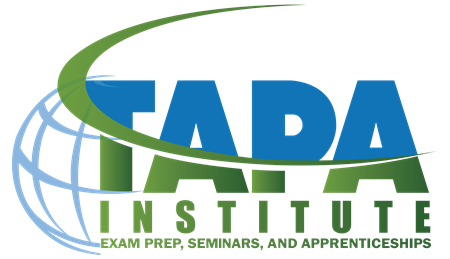Navigate Exam Stress with CPA Exam Stress Advice
Becoming a CPA or Certified Public Accountant entails a lot of challenges but at the same time is very fulfilling. The CPA exam is quite challenging, and this creates a lot of stress and anxiety when preparing for the exam. This is because one must study for many hours, juggle work and family responsibilities, and pass all four parts of the exam within the deadline. CPA exam stress advice and how to achieve it are very important in the right execution of projects.
Understanding The Sources of Stress
The CPA exam includes a broad range of topics, and candidates must prepare for it while working or studying and taking care of their families. This balance proves quite exhausting and puts immense pressure on the mind and also the body systems. The prospect of failure, financial constraints, and performance pressures can, however, compound the process. Managing stress during the CPA exam cannot be done if it does not begin with the identification of the causes of stress. When the candidates understand the causes of stress, they are in a good position to do something about it.
The Importance of A Structured Study Plan
The best way to deal with a large amount of pressure during exams is to set up a schedule. If there isn’t a proper schedule, the candidates might not cope with the amount of content they have to cover. Studying a time management plan at certain intervals of time, and that too with breaks and self-activities, can help to avoid it. It also means they can better manage their time and give each exam topic the required amount of attention. Moreover, dividing the sessions into smaller portions in some way makes the load to be handled seem more digestible.
Incorporating Stress Management Techniques
Stress management techniques can be useful in increasing the amount of attention paid and helping in remembering information. Techniques like mindful breathing, meditation, and muscle relaxation help one reduce stress and improve focus. Candidates can bring back their composure through techniques such as deep breathing, guided meditation, and progressive muscle relaxation. They also enhance focus, besides enhancing order and calmness, hence enhancing motivation and confidence among candidates.
Seeking Professional Support
However, stress may not always be sufficiently self-managed using personal coping strategies throughout therapy. It is appropriate since it offers professional help in the treatment of mental disorders with a focus on individual details. TAPA Institute, founded by Dr. Sabine Charles, provides specialized stress coaching services, which also include hypnotherapy for improving memory and confidence and lessening anxiety. These services assist the candidates in changing their study behaviors and attitudes as well as provide them with proper relaxation to perform well in the exams.
Embracing A Positive Mindset
It is important to remain optimistic and strong during the preparation phase. Instead of perceiving it as a huge hurdle, candidates should approach it as a potential to develop professionally. It’s important to focus on small wins, recognize successes, and use affirmation strategies. Cultivating the approach mindset, where errors are a form of learning as opposed to failure, alleviates a lot of stress and enhances performance.
Balancing Personal and Professional Life
Although the optimal work-study balance is essential for maintaining performance in the long term, it is not easy to achieve. Studying full-time and pulling all-nighters might seem like a smart way to pass every course and get good grades, but it is not healthy. Having regular breaks with family, friends, and hobbies makes life balanced and improves productivity and motivation. Taking a break from study sessions engages the students in other fun exercises, thus regaining energy and focus when they get back to studying.
Utilizing Available Resources
Making good use of available resources can make work easier when preparing for a project. The TAPA Institute offers tutoring sessions and CPA boot camps, as well as study scripts based on the learning modality of the learners. They also provide stress management strategies that enable candidates to improve their chances of succeeding. An effective study material combination, proper use of online practice exams, and knowing where to turn for help can greatly improve practice performance and self-confidence.
Conclusion
Studying for the CPA exam is a challenging task that needs not only brilliance but also the ability to cope with stress. Some of the most effective ways of managing stress during the CPA exam include following study schedules and structures, practicing relaxation, exercising, and consulting professionals. It is therefore important to note that the process of exam preparation can be made easier or even enjoyable depending on one’s strategy. Thus, the TAPA Institute, under the supervision of Dr. Sabine Charles, provides CPA exam stress advice to address this challenging process effectively. This way, aspiring CPAs can adopt these tips and tools to stay healthy, study effectively, and get the desired results in their profession.

